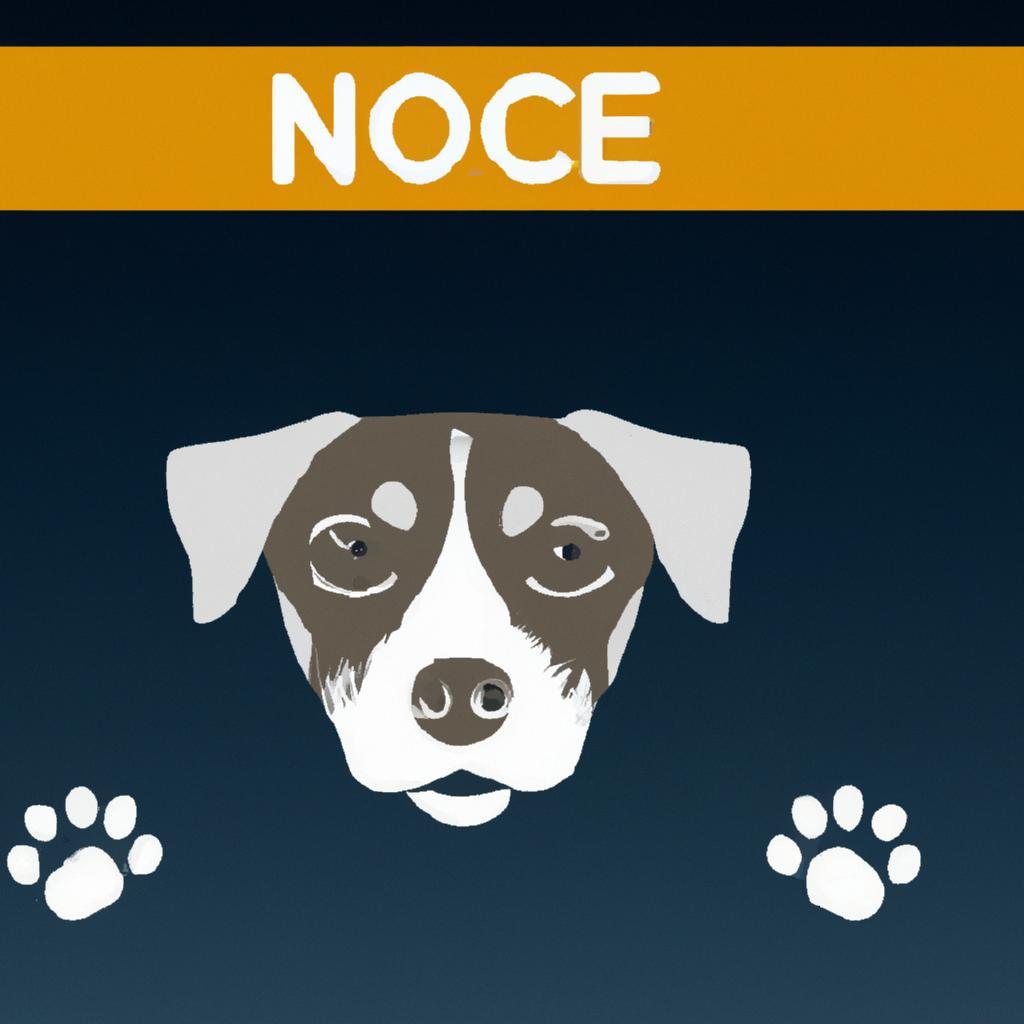In a quiet neighborhood, a golden retriever named Max became a local legend. Every morning, he greeted children with wagging tails and gentle nudges, bringing smiles to their faces. One day, a shy girl named Lily, hesitant to play outside, found courage in Max’s warm eyes. With his playful antics, he coaxed her into joining the fun. Max wasn’t just a dog; he was a bridge to friendship and joy. His kindness and loyalty exemplified the essence of the nicest dog. Isn’t it time we recognize that the true measure of a dog’s worth lies in the love they share?
Contents
- Understanding the Characteristics of the Nicest Dog Breeds
- Evaluating Temperament and Behavior in Canine Companions
- The Role of Training and Socialization in Developing a Friendly Dog
- Choosing the Right Breed for Your Lifestyle and Family Dynamics
- Q&A
Understanding the Characteristics of the Nicest Dog Breeds
When considering the qualities that define the most amiable dog breeds, several characteristics stand out. **Temperament** plays a crucial role; dogs that are naturally friendly and sociable tend to be more affectionate and easier to train. Breeds such as the Golden Retriever and Labrador Retriever are renowned for their gentle nature and eagerness to please, making them ideal companions for families and individuals alike. Their ability to bond with humans and other pets enhances their reputation as some of the nicest dogs.
Another important aspect is **intelligence**. Many of the friendliest breeds are also among the most intelligent, which allows them to understand commands and social cues better. Breeds like the Poodle and Border Collie not only excel in obedience but also thrive on interaction with their owners. This intelligence fosters a deeper connection, as these dogs can engage in various activities, from playing fetch to participating in agility training, all while maintaining a friendly demeanor.
**Adaptability** is yet another characteristic that contributes to a breed’s niceness. Dogs that can easily adjust to different environments and lifestyles tend to be more pleasant companions. Breeds such as the Beagle and Cavalier King Charles Spaniel are known for their versatility, making them suitable for both active households and quieter settings. Their ability to adapt to various situations ensures that they remain calm and friendly, regardless of the circumstances.
Lastly, the **energy level** of a dog can significantly influence its friendliness. Breeds with moderate energy levels, like the Basset Hound and Shih Tzu, often exhibit a laid-back attitude that can be very appealing. These dogs are typically content to lounge around with their owners, providing companionship without overwhelming them with excessive playfulness. This balance of energy and affection makes them wonderful pets for those seeking a loving and gentle canine friend.
Evaluating Temperament and Behavior in Canine Companions
When considering the qualities that make a dog truly delightful, evaluating temperament and behavior is paramount. A dog’s temperament encompasses its natural disposition, which can significantly influence its interactions with humans and other animals. Breeds known for their friendly and gentle natures often exhibit traits such as affection, patience, and sociability. These characteristics not only enhance the bond between the dog and its owner but also create a harmonious environment for families and communities.
Behavioral assessments are equally crucial in determining a dog’s suitability as a companion. Observing how a dog reacts in various situations can provide insights into its temperament. Key behaviors to consider include:
- Playfulness: A dog that enjoys playtime is often more engaging and fun to be around.
- Calmness: Dogs that remain composed in stressful situations tend to be more adaptable.
- Socialization: A dog that interacts well with other pets and people is likely to be a well-rounded companion.
Moreover, training and socialization play a significant role in shaping a dog’s behavior. A well-trained dog is not only more obedient but also exhibits better manners, making it a joy to have around. Positive reinforcement techniques can help cultivate desirable behaviors, ensuring that the dog grows into a well-adjusted member of the family. This proactive approach to training fosters a trusting relationship between the dog and its owner, further enhancing the overall experience of companionship.
Ultimately, the “nicest” dog is one that aligns with the lifestyle and personality of its owner. By evaluating temperament and behavior, potential dog owners can make informed decisions that lead to fulfilling relationships with their canine companions. Whether it’s a playful Labrador, a gentle Golden Retriever, or a sociable Beagle, understanding these traits is essential in finding the perfect furry friend that brings joy and warmth into everyday life.
The Role of Training and Socialization in Developing a Friendly Dog
Training and socialization are fundamental components in shaping a dog’s temperament and behavior. A well-trained dog not only understands commands but also learns to navigate various environments and situations with confidence. This foundation fosters a sense of security, allowing dogs to interact positively with people and other animals. By establishing clear boundaries and expectations through training, owners can cultivate a friendly demeanor in their pets, making them more approachable and enjoyable companions.
Socialization plays an equally crucial role in developing a dog’s friendliness. Exposing dogs to diverse experiences, people, and environments from an early age helps them become well-adjusted adults. This exposure reduces the likelihood of fear-based reactions and aggression, which can stem from unfamiliar situations. Key aspects of effective socialization include:
- Introducing the dog to various people, including children and seniors.
- Encouraging interactions with other dogs in controlled settings.
- Exposing the dog to different environments, such as parks, busy streets, and pet-friendly stores.
- Utilizing positive reinforcement to reward calm and friendly behavior.
Consistency in training and socialization practices is vital for long-term success. Regular training sessions, coupled with ongoing socialization opportunities, help reinforce positive behaviors and prevent the development of undesirable traits. Engaging in activities such as obedience classes, playdates, and community events can significantly enhance a dog’s social skills. Moreover, these experiences create a bond between the dog and its owner, fostering trust and mutual respect.
Ultimately, the combination of effective training and comprehensive socialization lays the groundwork for a friendly dog. By investing time and effort into these practices, owners can ensure their pets not only exhibit friendly behavior but also thrive in various social settings. A well-trained and socialized dog is not just a joy to have at home; it becomes a beloved member of the community, spreading happiness wherever it goes.
Choosing the Right Breed for Your Lifestyle and Family Dynamics
When it comes to selecting a dog that complements your lifestyle and family dynamics, it’s essential to consider various factors that can influence your decision. Each breed has its unique characteristics, energy levels, and temperament, which can significantly impact how well they fit into your home. **Assessing your daily routine** is a crucial first step. If you lead an active lifestyle, a high-energy breed like a Labrador Retriever or a Border Collie may be ideal, as they thrive on exercise and playtime.
On the other hand, if your household is more laid-back, you might prefer a breed that enjoys lounging around and requires less physical activity. **Consider breeds such as** the Bulldog or the Basset Hound, which are known for their calm demeanor and lower exercise needs. Additionally, think about the ages and activity levels of your family members. A playful puppy may not be the best match for a home with very young children or elderly individuals, as their exuberance can lead to unintentional accidents.
Another vital aspect to evaluate is the **size of your living space**. If you live in a small apartment, smaller breeds like the French Bulldog or the Pug can adapt well to limited space. Conversely, larger breeds such as the Great Dane or the German Shepherd require more room to roam and play. It’s also important to consider your yard size, as a fenced-in area can provide a safe space for larger dogs to exercise freely.
Lastly, don’t forget to factor in **allergies and grooming needs**. Some breeds, like the Poodle or the Maltese, are hypoallergenic and may be suitable for families with allergy concerns. Additionally, consider the grooming requirements of different breeds; long-haired dogs may need regular grooming sessions, while short-haired breeds are generally easier to maintain. By carefully considering these elements, you can choose a breed that not only fits your lifestyle but also enhances your family dynamics, ensuring a harmonious and joyful home for both you and your new furry friend.
Q&A
-
What breed is considered the nicest dog?
While “niceness” can vary by individual dog, breeds like the Golden Retriever, Labrador Retriever, and Cavalier King Charles Spaniel are often praised for their friendly and gentle nature. These breeds are known for their affectionate demeanor and sociability, making them great companions.
-
Are mixed-breed dogs nicer than purebreds?
Mixed-breed dogs can be just as nice, if not nicer, than purebreds. Their diverse genetics often lead to a more balanced temperament. Additionally, many mixed-breed dogs are found in shelters, providing an opportunity to adopt a loving companion while also saving a life.
-
How can I ensure my dog is nice?
Training and socialization are key to raising a nice dog. Early exposure to different people, environments, and other animals can help your dog develop a friendly and confident personality. Consistent positive reinforcement during training also fosters good behavior.
-
What role does a dog’s upbringing play in their temperament?
A dog’s upbringing significantly influences its temperament. Dogs raised in loving, stimulating environments tend to be more well-adjusted and friendly. Conversely, dogs that experience neglect or abuse may develop behavioral issues. Investing time in your dog’s upbringing is crucial for nurturing a nice companion.
the nicest dog is not just a breed but a reflection of love, training, and companionship. Choose wisely, invest time, and you’ll discover a loyal friend who enriches your life beyond measure. Embrace the joy of canine companionship today!

大家好,我是彼得潘,專業的手法身體治療師。我喜歡探索和研究各種主題,並透過與人工智慧的合作分享專業、實用、有趣的文章。我們定期進行人工審核,以確保內容的準確性。如果您發現文章中有任何不準確的地方,請隨時與我們聯繫,我們會及時糾正。您可以透過 [email protected] 與我們聯繫。



